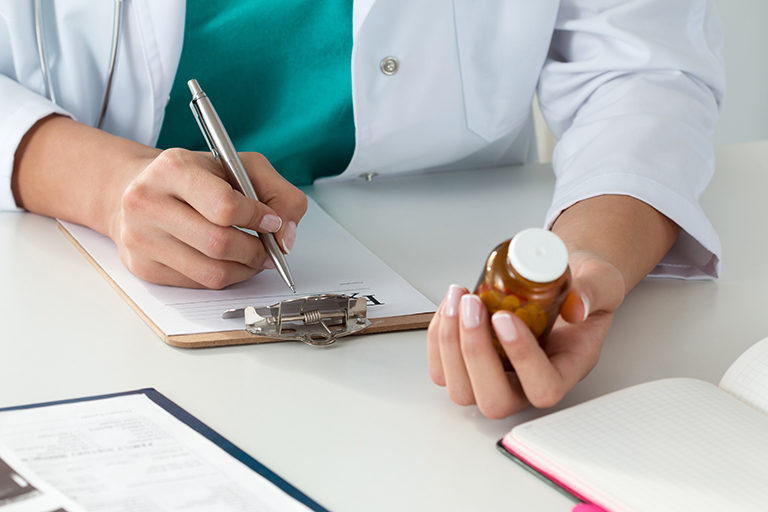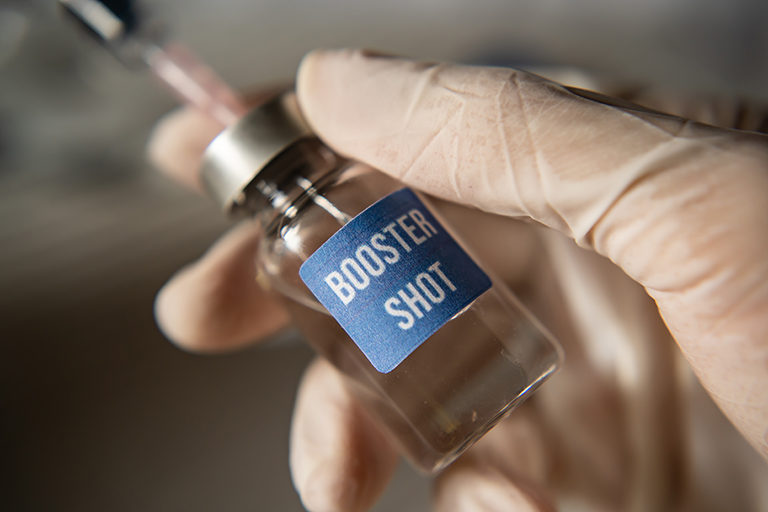
Living Well at Home

We’ve all seen the numbers: COVID-19 has claimed the lives of over 590,000 Americans.1 The impact on communities of color has been devastating. Black and Latinx people are about three times more likely to be hospitalized from COVID than white people.1 Those who couldn’t work from home were especially at risk because they had to take public transportation or be in close contact with others. Many also couldn’t afford to buy masks and other protective gear.
As COVID-19 burnout sets in—and as infection rates continue to slow and statewide restrictions are relaxed—it can be easy to let our guards down. But we can’t ignore how COVID-19 has already affected our lives and the lives of our loved ones. We have seen, first hand, how this disease has robbed families of mothers, fathers, grandparents, and even children. Most of us have a story to tell: we’ve all been subject to loss, isolation, stress, pain, or suffering.
Today, I want to share my personal COVID-19 story. I come from a tight-knit West Indian family. Many of my family members work in healthcare. Each one of them is careful. They take all the precautions to keep themselves, their families, and their communities safe.
Even after knowing about safety measures, almost half of the households in my family were infected with COVID-19. Some experienced mild symptoms, while others had very serious issues. My uncle spent almost eight weeks in a hospital on a ventilator. He had two surgeries and experienced two types of pneumonia. Thankfully, he recovered after some time and entered a rehabilitation center.
My personal experience with COVID-19 may be different than yours. But we all share one thing in common: the ability to stop this pandemic once and for all.
That’s why asking everyone to get vaccinated is so important to me. The vaccine is our best defense against this devastating, life-robbing disease.
If you’re feeling uncertain about the vaccine, I don’t blame you. Many people have questions and concerns about a new vaccine for a disease that has been made political. Worse yet, misinformation on social media and TV has led to a lot of mistrust.
Despite the misinformation, we know these simple facts:
- According to the Massachusetts Department of Public Health,1 the COVID-19 vaccines were developed using methods that have been in place for many years
- The FDA1 made sure testing was held to the same tough standards as other vaccines
- The CDC1 says side effects go away in a few days. Some people do not experience side effects
- The World Health Organization1 says that adverse side effects, in general, tend to be mild to moderate
I understand that many of these facts may not line up with what you’ve heard from family, friends, or even TV. For example, last month, the J&J vaccine made national headlines for causing blood clots. After a pause, and a detailed review of all available data, the CDC and FDA1 said the use of this vaccine should resume—because the potential benefits outweigh the potential risks.
It’s also important to remember that the risk of blood clots from the J&J vaccine is very small—less than 1 in a million. In fact, your chances of getting a blood clot from this vaccine are lower than your chances of getting struck by lightning.1 And, for those at greater risk for developing this side effect—women younger than 50—you still have other vaccine options. There is no evidence that mRNA vaccines, such as Pfizer and Moderna, are associated with blood clots.1
I know that these facts may not be enough to convince you—but maybe my personal experience will. As a healthcare worker, I received the vaccine early and I am confident in its safety. Today, because I’m vaccinated, I can protect not only myself, but also my family.
At the least, I hope my story answered some of your questions. The choice to get vaccinated is yours. But I hope any distrust you feel toward the healthcare system or the government doesn’t impact your decision. I hope it doesn’t keep you from further protecting yourself and your loved ones.
As healthcare organizations continue to give COVID-19 vaccines, we have an opportunity to do it right. We will do this by respecting our members and patients. We understand that they have every reason to have doubts and we’re willing to answer any questions you may have.
Together we can be on the right side of history by allowing the vaccine to build even stronger communities.
1 When you click this link, you will leave the Commonwealth Care Alliance website.
Please talk to your physician with any questions or concerns you may have about COVID-19 and available vaccine options.
For questions, CCA members can also call Member Services at 866-610-2273 (TTY 711), from 8:00 am to 8:00 pm, Monday through Friday, and 8:00 am to 6:00 pm, Saturday and Sunday.
Sources: CDC; CDC; Massachusetts Department of Public Health; FDA; CDC; World Health Organization; CDC and FDA; CNN; CNN
Related Articles


Covid-19 Fatigue and Burnout: How to Manage Those Feelings of Exhaustion

